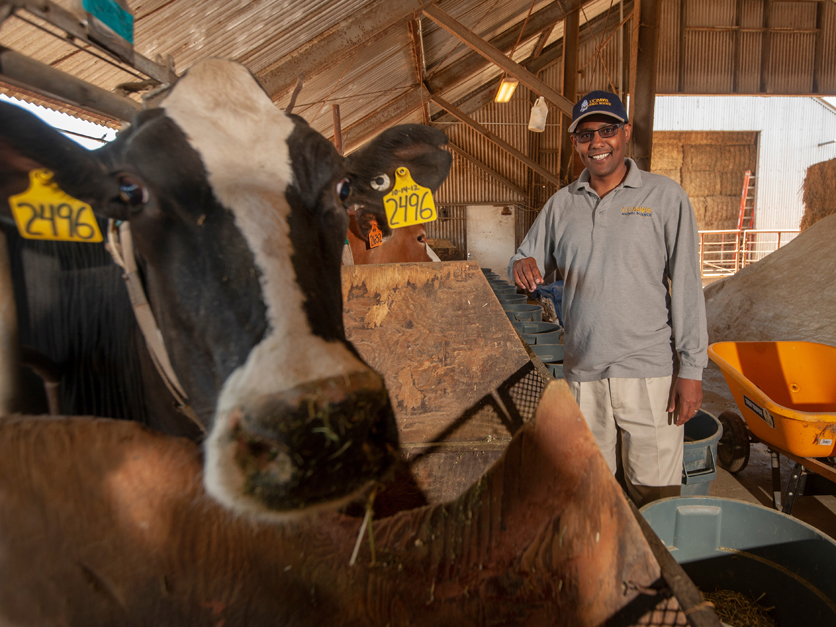Two UC Davis professors known for their research into emissions from dairy cows have shown that climate neutrality is within reach for the sector. Their new white paper out Wednesday unpacks the science.
While California leads the nation in dairy sales, the greenhouse gas emissions from dairies account for just 4% of the state’s total. The authors explain that the type of methane released from the digestive process is a short-lived climate pollutant. This means emissions from more than 12 years ago have already broken down and disappeared. During that time, the industry has also gained new efficiencies in milk production and adopted practices that reduce emissions—meaning overall emissions are already on the decline.
“Further reductions will be accelerated as dairy methane reduction projects are implemented and feed additives become widely available,” said Ermias Kebreab, a professor of sustainable agriculture.
Senate Bill 1383 in 2016 set a goal of reducing short-lived pollutants by 40% from 2013 levels. State incentives programs have helped dairies purchase anaerobic digesters to collect the methane and pipe into natural gas systems as well as incorporate new manure management practices that lead to fewer emissions.
Interested in more coverage and insights? Receive a free month of Agri-Pulse West.
Emissions from fossil fuels make up 80% of the state’s greenhouse gas pollution. This comes in the form of carbon dioxide, which stays in the atmosphere far longer than methane.
The researchers partnered with Dairy Cares, a group that is focused on sustainability and is a strong industry voice at the capitol.
Top photo: Prof. Ermias Kebreab (UC Davis)


